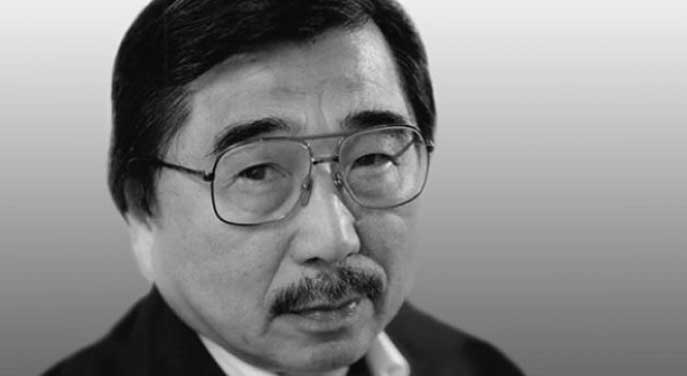
The life story of Gordon Hirabayashi, whose fight for the rights of interned Japanese Americans during the Second World War made legal history in the United States, is being told in a new production of the one-man play “Hold These Truths.” (Photo: Supplied)
When Japanese Americans were evacuated from the West Coast and sent to internment camps during the Second World War, Gordon Hirabayashi refused to comply.
Acting on the courage of moral conviction, the Quaker pacifist instead turned himself in to the FBI, prepared to challenge the unjust executive order and take the case as far as he could.
He was convicted of curfew violation and sentenced to 90 days in an Arizona prison camp. But because the government lacked the resources to send him there, he hitchhiked on his own across several states.
Hirabayashi appealed his conviction all the way to the U.S. Supreme Court, losing in Hirabayashi v. United States in 1943. Despite that loss, his legal battle eventually went down in history as a triumph of the civil rights movement.
After the war, he earned bachelor’s, master’s and PhD degrees from the University of Washington and secured a job at the University of Alberta in 1959, where he chaired the Department of Sociology from 1970 to 1975. Under his tenure, the department’s sociology program was one of the top three in the country.
 Kevin Takahide Lee |
 Melanie Dreyer-Lude |
Hirabayashi’s remarkable life story, captured in a one-man play called Hold These Truths by American playwright Jeanne Sakata, stars Vancouver actor Kevin Takahide Lee and is directed by Melanie Dreyer-Lude, former chair of the Department of Drama. The play was held at the University’s Timms Centre for the Arts last week.
“When the play was proposed to me, I just had to do it,” said Dreyer-Lude.
“Diversity practice is really important to me, as is the social message of this play. Canada has been battling a lot of anti-Asian hate lately. We need to stop pretending it’s not there and engage the public in these dialogues.”
Soon after retiring from the U of A in 1983, Hirabayashi received an intriguing call from California. Rummaging through court archives, political scientist Peter Irons had come across a document proving the U.S. government had misrepresented the necessity of internment in Hirabayashi’s Supreme Court case.
Citing government misconduct, the Court of Appeals for the Ninth Circuit finally overturned his criminal conviction in 1987.
Only months after his death in 2012 at the age of 93, Hirabayashi was awarded the Presidential Medal of Freedom by U.S. President Barack Obama for his principled stand against Japanese American internment.
Members of his Edmonton family accepted the medal on his behalf. Other luminaries included astronaut John Glenn, ex-secretary of state Madeleine Albright, singer-songwriter Bob Dylan, novelist Toni Morrison and Israeli president Shimon Peres.
“Gordon took a lot of pride in being at the U of A,” said Lee. “He had several job offers but saw the potential of the sociology department. He could have gone back anytime to America, but he recognized that he had a claim in the Edmonton community, so he ended up staying there for the rest of his life.”
While performed entirely by Lee – along with shadow puppets and two voiceless traditional Japanese characters called “kurokos” – the play includes more than 40 characters.
Hirabayashi’s life is a powerful statement on the right kind of resistance, said Dreyer-Lude, one engaging the court system rather than promoting violence.
“Eventually, the justice system comes through for him,” she said. “The message for me is that there is hope.”
An established actor who has performed widely across B.C.’s lower mainland, Takahide Lee is a fourth-generation Chinese Japanese Canadian whose family lived through the Japanese Canadian internment during the Second World War.
“I feel like I knew Hirabayashi’s father and mother,” he said. “There are elements of his life that resonate with me. Mostly I admire his philosophy and how it enabled people to make better ethical choices.”
The production is part of a set of events commemorating 10 years since Hirabayashi’s death. It was sponsored by the government of Alberta, the faculties of arts and education, the departments of sociology and drama, the Prince Takamado Japan Centre for Teaching and Learning, the Edmonton Japanese Community Association and the John Humphrey Centre For Peace and Human Rights.
| By Geoff McMaster
Geoff is a reporter with the University of Alberta’s Folio online magazine. The University of Alberta is a Troy Media Editorial Content Provider Partner.
The opinions expressed by our columnists and contributors are theirs alone and do not inherently or expressly reflect the views of our publication.
© Troy Media
Troy Media is an editorial content provider to media outlets and its own hosted community news outlets across Canada.


